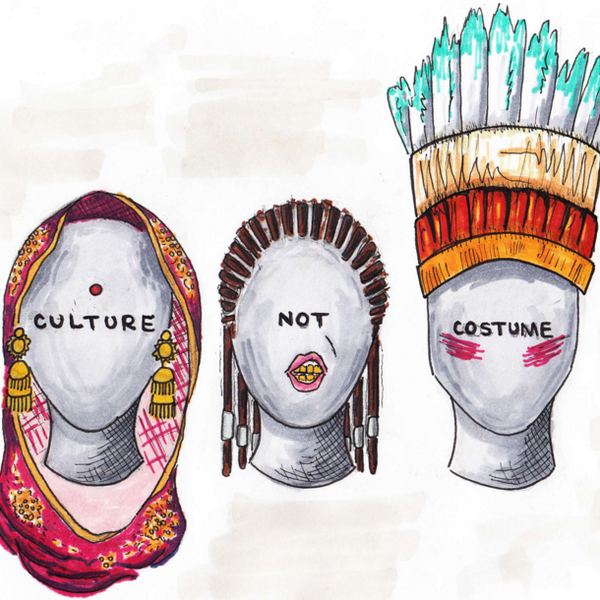In a capitalist society in which all goods, industry and trade are controlled by private owners for their personal economic gain, aspects and symbols of one's culture can be commodified and therefore devalued or made profitable throughout society. Cultural Capitol is a theme introduced in 1977 by French sociologist Pierre Bourdieu that speaks to the ways in which cultural aesthetics (dress, language, music, art, intellect, etc.) of the dominant class are commodified in exchange for success or access to resources. Often times the resources gained by the dominant class are cultural and not original to them. The intersection of race and class in the United States shows that non-white citizens are subjected to marginalization and more likely to experience poverty. Because of this marginalization the ability to then commodify one's distinct culture for capitol gain is also repressed while the dominant class extracts profitable aspects of another's culture.
Throughout the education system cultural capitol is used to marginalize ethnic and racial minorities unless they are able to adopt aesthetics of the dominant class. Things like speaking proper English, dressing a particular way, religion, wearing particular hairstyles and having knowledge of the dominant class's history and culture are seen as valuable in the education system and can be exchanged by students for success and access to resources. Segregated schooling in America proves that the education system has failed ethnic and racial minorities who often attend schools located in low-income neighborhoods where the dominant culture is not coherent with that of the dominant class whom controls the curricula and provides the determining culture that one must assimilate into for academic success.
The expectations for the academic achievement or success of students who come from a working class background typically encourages students from these backgrounds to gain technical/trade skills and aspire to remain a part of the working class believing that they will eventually be able to ascend class barriers and gain upward mobility, though not likely. In contrast, students coming from an upper-middle class background are inherently taught to remain a part of the bourgeoisie and perpetuate a system that marginalizes others who are unable to adhere to the accepted norms, ideologies and practices of the dominant class.
The disservice of the education system is essentially a product of colonial-settlerism throughout the Western Hemisphere that perpetuates the dominance of European occupiers over non-whites, indigenous peoples and immigrants. Nothing is more indicative of this than the disparity of wealth and education in primarily non-white communities. Often people tend to credit members of low-income communities for their being in poverty without examining the historical context of which said poverty was created. The systematic marginalization of ethnic and racial minorities through cultural capitalism and the education system is entirely the fault of the United States government and is an issue not often spoken about when it comes to conversations about educational and economic reforms.





















